The legal service market is big.
Really big.
In fact, it’s worth $289.8 billion in the United States alone.
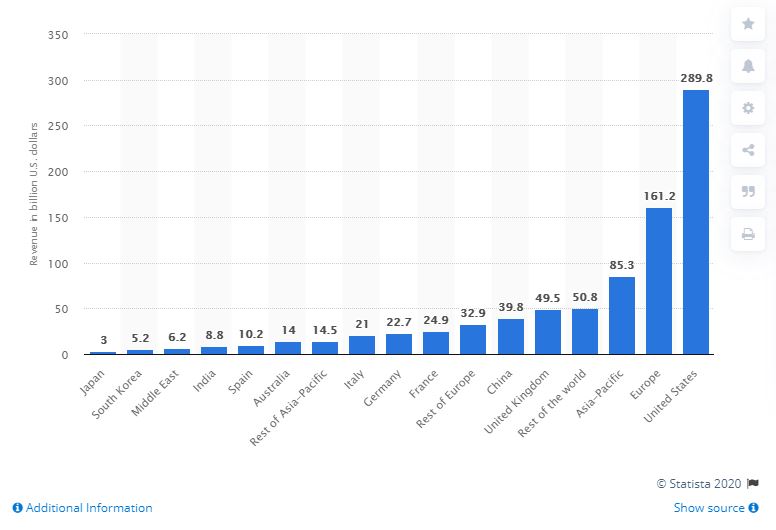
And who’s stimulating that growth?
Customers!
As an attorney, you could be generating more clients than ever knowing this.
But, slow your horses.
It’s not that easy.
Lawyers are known for one thing: legalese.
A.K.A big words and technical jargon that only they understand.
Over-using it is a surefire way to confuse potential clients.
That’s why I’m doing you a favor and covering effective copywriting strategies for lawyers in today’s article.
Use these on a website or other business assets to improve branding and engagement.
What is copywriting for lawyers anyways?
First of all, what is copywriting?
It’s the practice of writing sales copy for:
- Web pages
- Sales pages
- Landing pages
- Sales letters
- Brochures
- Fliers
- Etc.
Or, anything that promotes a product or service in general.
Anyone can do that, right?
The opposite, actually.
A talented law firm copywriter uses science and psychology to sell with their words.
They understand social, behavioral, and purchasing psychology.
Intense research skills are used to become familiar with any market and customer base, as well.
That’s why outsourcing copywriting is such a wise investment.
The hours spent researching, writing, and editing is all done for you.
A great writer like myself will also generate a clear ROI.
Whether you’re looking to outsource or write sales copy by hand, become familiar with the strategies next.
Lawyer copywriting tips
Alright, time to get into the meat and potatoes.
These are strategies you can begin using today to write powerful law firm copy.
1. Speak in the customer’s language
I mentioned earlier that lawyers are amazing at one thing: using legalese.
I don’t blame you.
Now, you may have to use it legally. (No pun intended.)
However, wherever you can, you want to speak in a language that makes customers comfortable.
…A language they relate and resonate with.
Because the reality is that most people didn’t graduate from law school or know what complex legal terms mean.
If anything, it can intimidate and confuse them.
Look at this criminal defense lawyer’s website, for instance:
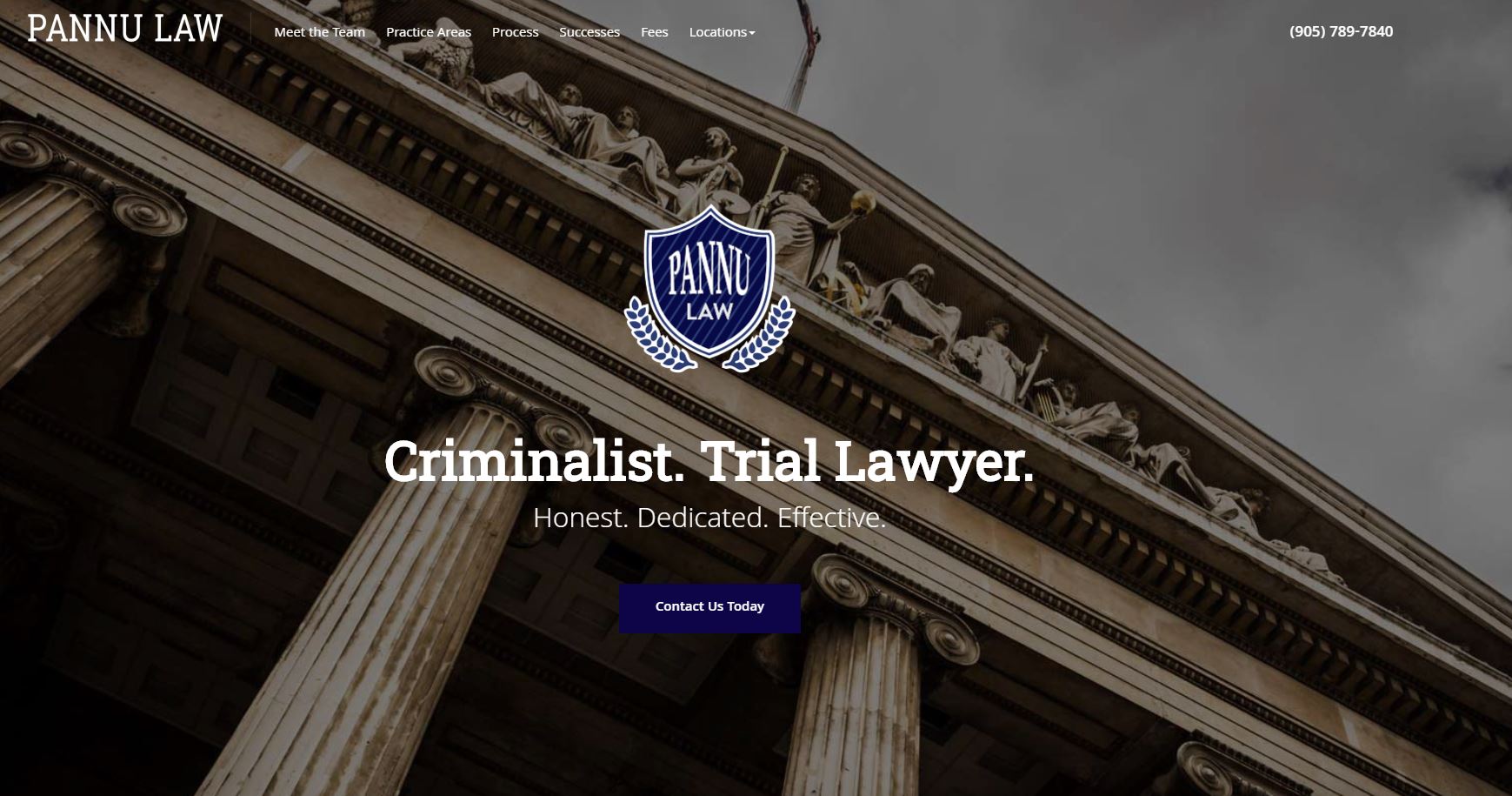
It clearly states the type of law firm they are and the navigation points to other useful pages.
In particular, here are a few more techniques to master this:
Use short sentences and paragraphs
Big blocks of text are what you expect to see in a newspaper. Not a website.
If you break down everything into smaller chunks, it’s easier on the eyes and simpler to read.
Try limiting paragraphs to one or two sentences with this in mind.
Using the above law firm’s website again, you see this approach used on their services page.
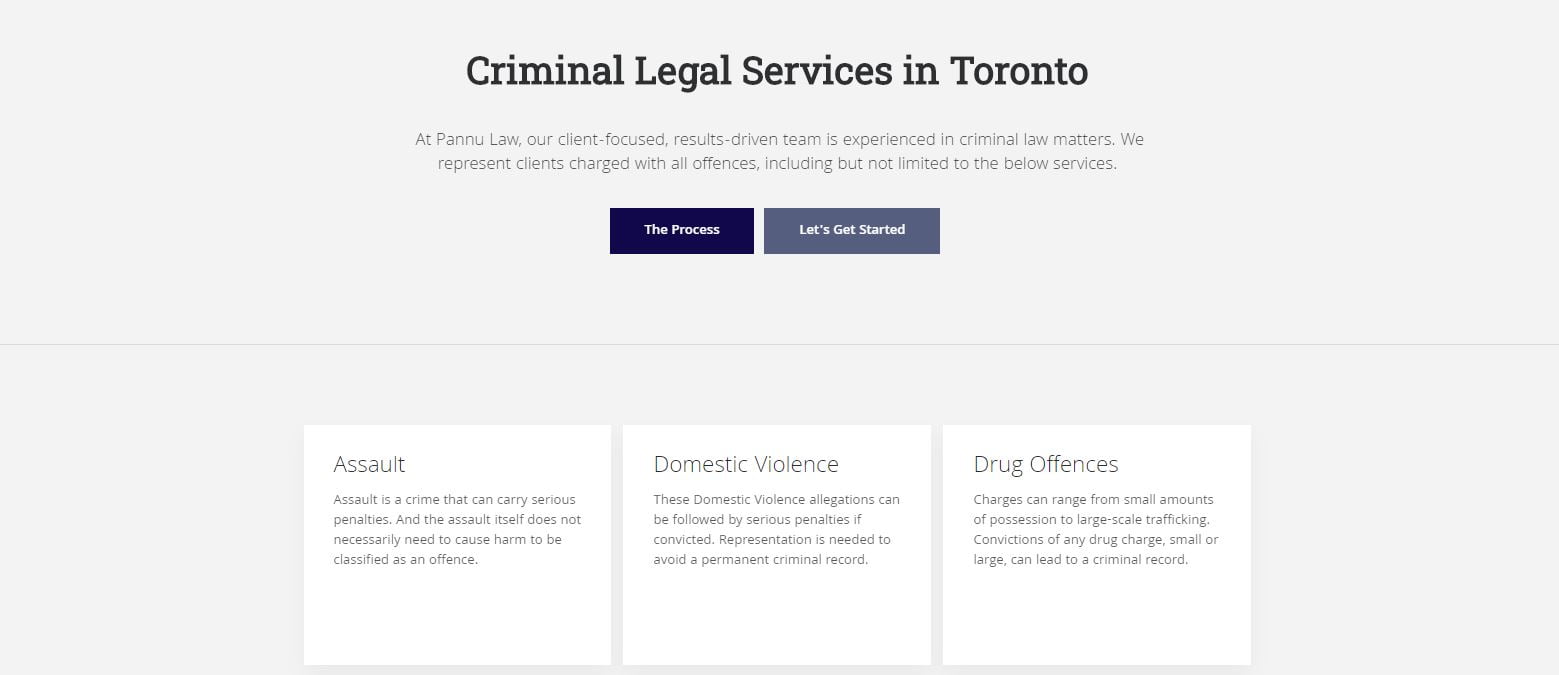
Everything is short and sweet.
Only the most important information is presented, too.
Format pages with header tags
Header tags are bolded titles that separate points on web pages.
From a technical standpoint, they include H1, H2, H3, and all the way to H6.
Most of the time you will only need H1–H3.
Use larger tags to define big ideas and smaller ones for sub-points.
This makes content easier to skim, too.
After all, most readers search for the most important piece of information and seldom read everything word-for-word.
Use a tool like Hemingway Editor
If you’re not super confident about writing and editing, use a tool to support you.
I recommend a free website called Hemingway Editor.
Paste in any sales copy or write it from scratch in the editor.
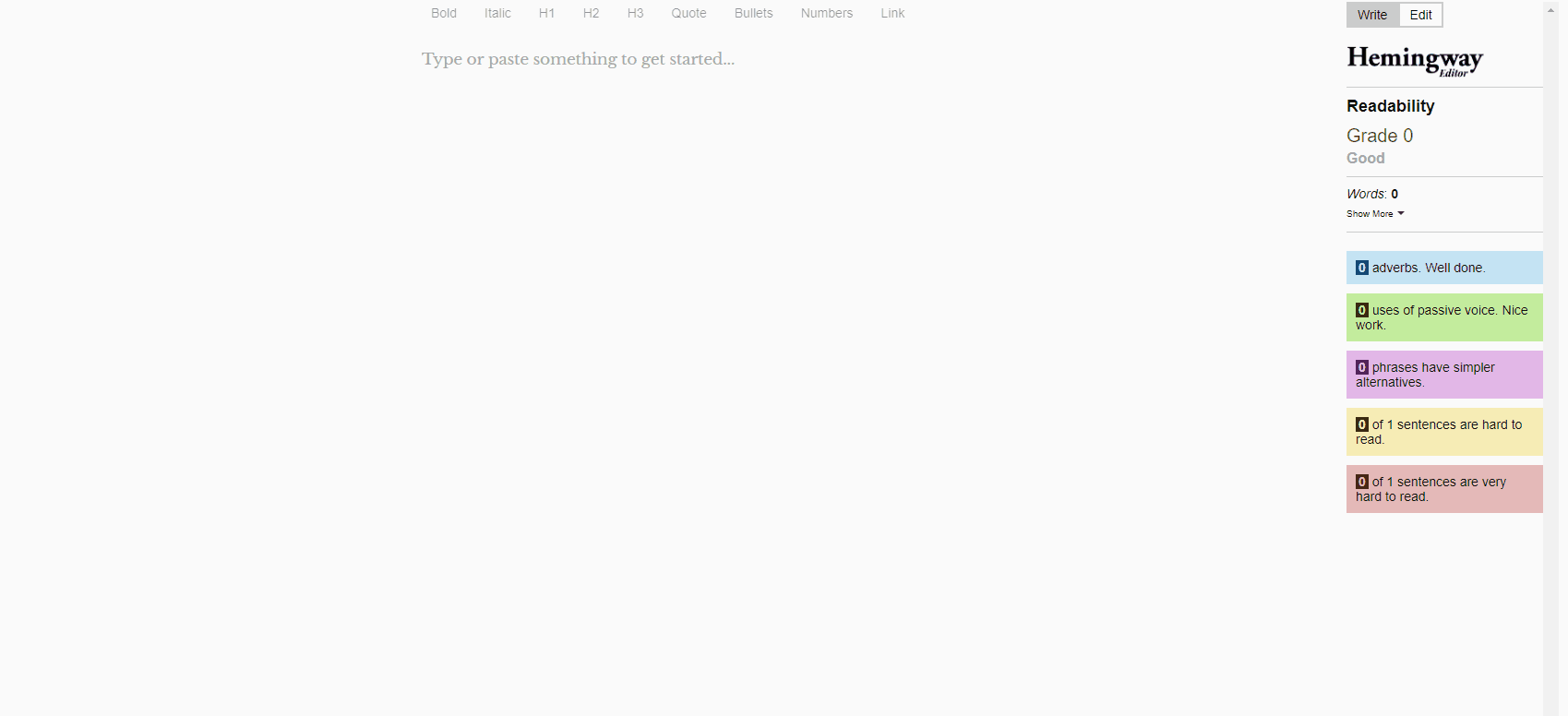
Most importantly, it will give you a reading level score.
Use this to attain a level that your customers are comfortable with.
Keep in mind that 63 million adults in the United States read between a sixth and eighth-grade level.
2. What’s the benefit of working with you?
You can offer X, Y, and Z legal services, but what does that really mean?
Not a whole lot.
You see, some law firms make the typical mistake of not elaborating on the benefits of working with them.
Let’s say that you’re a personal injury lawyer, for example.
You might represent cases where clients get injured at work, while driving, etc.
That’s great.
However, it’s not what customers truly want.
Rather, they are looking for emotions and experiences like:
- Receiving compensation for the hardship they’ve experienced.
- Protection from aggressive insurance companies that are taking advantage of them.
- Peace of mind and finally being able to relax.
- All of the hard work and paperwork being done on their behalf.
- A quick settlement and consistent communication.
Explain the benefit of each service you offer and don’t be surprised when your phone is ringing non-stop.
3. Calls to action and lots of em’
“Your customer isn’t stupid, she’s your wife.” is one of the best advertising quotes ever.
David Ogilvy said that by the way.
I’m bringing it up because even though it might be obvious what to do in a sales process, a little push never hurts.
That’s why law firms need to use more calls to action or CTAs for short.
These are words and phrases that help the customer in the right direction.
And in a time where they may be very emotional and overwhelmed, any help counts.
Now, a CTA needs to be placed everywhere a major action is taken.
That means they should be used to promote:
- Completing forms
- Calling a phone number
- Emailing
- Following social accounts
- Visiting an office
- Scheduling a consultation or meeting
Deep down we all like to be told what to do, as well.
This is because it saves us time and energy from having to do it to our selves.
If you haven’t noticed by now, copywriting is about primitive psychology and science. Fascinating, huh?
Look how this law firm uses a call to action above the fold of their website:
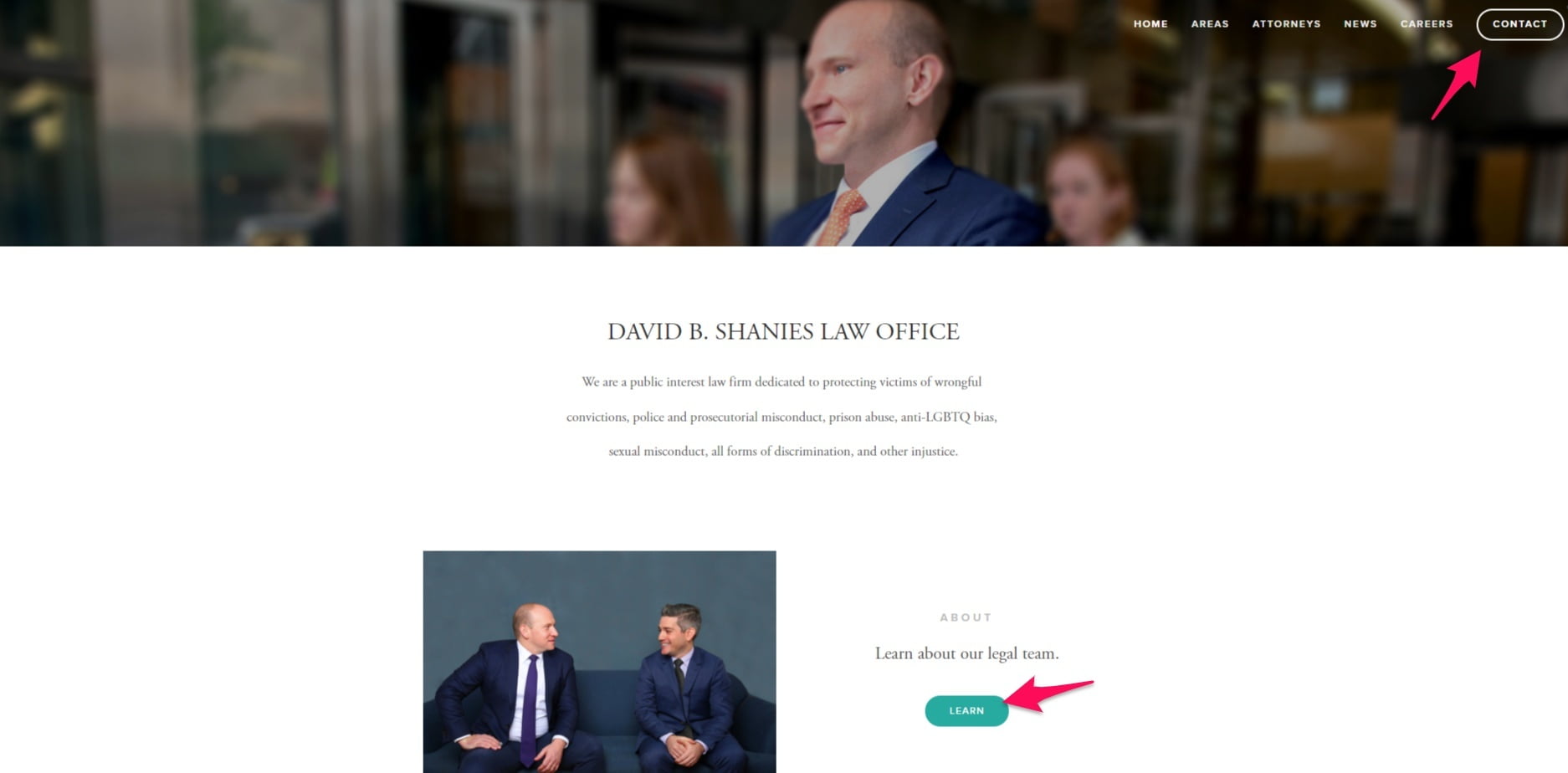
Scrolling down we see more CTAs to promote engagement.
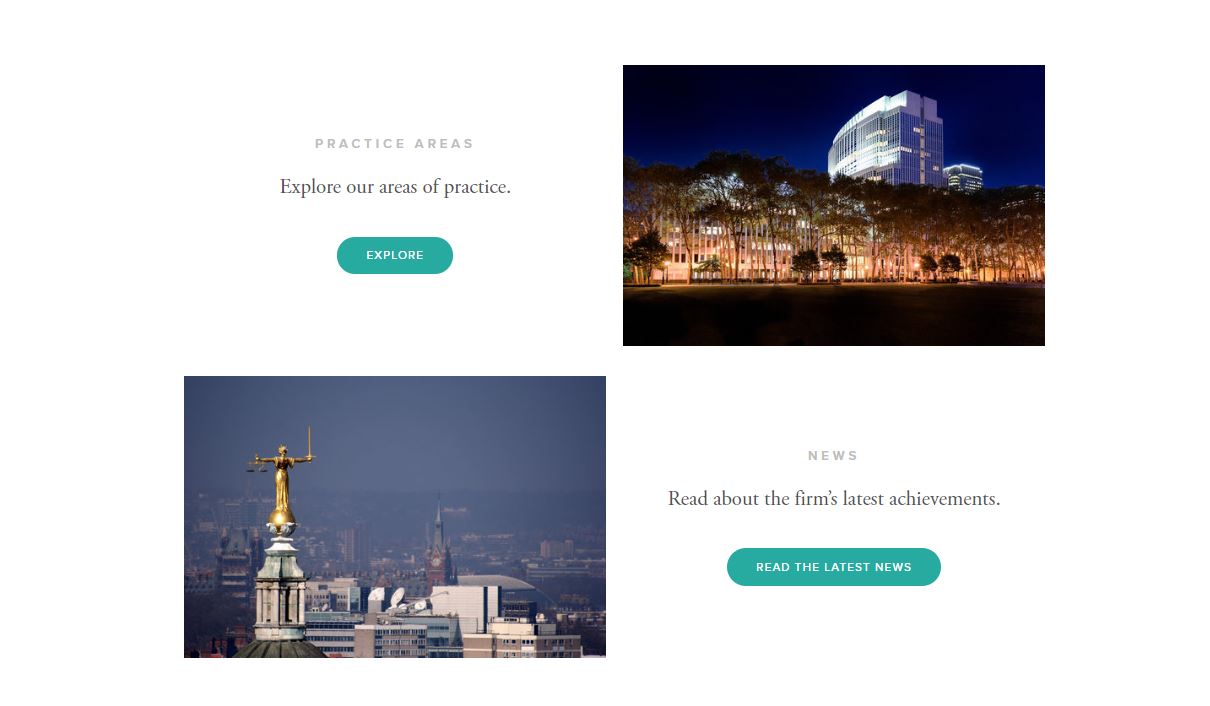
There should be at least one major call to action on every page of your website like this.
4. Offer lead magnets
You want leads, right?
Then it only makes sense to offer resources that attract them in the first place.
Everybody loves free stuff.
So, here’s the thing…
A lead magnet is a free resource that educates people on your services and industry.
It also separates the less serious and qualified users on a website.
Those willing to take the extra steps to receive the resource are clearly more serious.
They are worth emailing, calling, and following up with.
Read my guide to lead magnets here if you haven’t already, and consider the following types of resources:
- Whitepapers
- Case studies
- Checklists
- Cheatsheets
- Brochures
- Newsletters
- Consultations
- E-books
Contact me at any time if you require a copywriter to produce this type of material for you.
5. Pull on their emotions
Why do customers buy anything?
Emotions.
Sure, someone may need to get a legal situation hashed out, but really it’s causing them emotional turmoil.
That needs to be solved and improved.
And that’s what you’re here for!
Similar to what I taught you about elaborating on the benefits of services, creating emotion is equally as important.
Here are a couple of ways to do this:
Ask relevant questions
Asking a question to an audience gets them thinking and engaging with sales copy.
This increases their attention and investment in finishing it which gets them closer to the sale.
Additionally, it’s a great way to elicit emotion.
Ask them questions about their situation, its repercussions, and pain points.
What’s bothering them?
What’s keeping them up at night?
Not only does this generate feelings, but it also shows that you understand who they are and that they’re in good hands.
Use emotional power words
So many entrepreneurs underestimate the power of words in business.
It’s been proven that changing a single word can boost conversions and click-through.
Don’t believe me?
Look at this copywriting experiment Beem Digital ran on one of their clients:
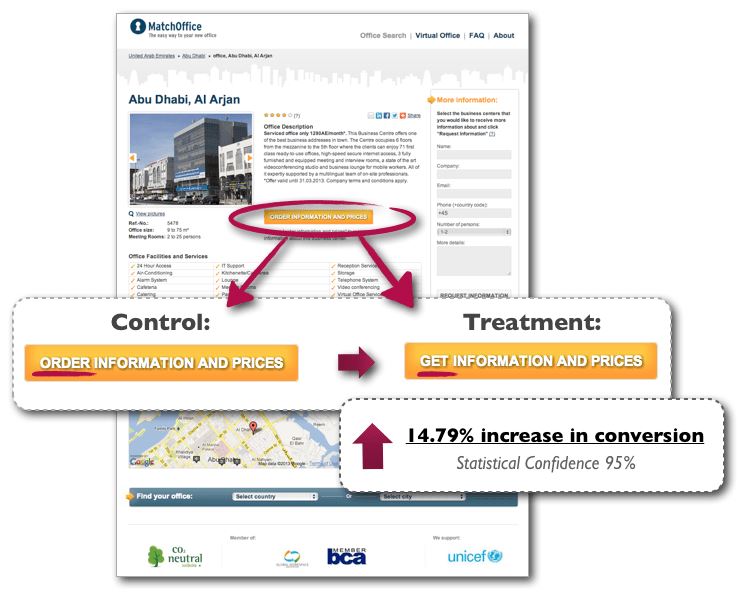
They changed a single word in the call to action and conversions jumped by 14.79%!
Imagine if you completely rehauled your website in this manner.
But, to begin, let’s learn to use power words.
These are words that have a large emotional impact.
Depending on the emotions you’re trying to create, you can use different combinations of words.
Some fundamental ones are:
- You
- Results
- Value
- Imagine
- Easy
- Benefit
- Proven
- Solution
- Trusted
- Free
- Best
- Safe
Paint a picture in their head
Imagination is wonderful.
Organizations can help customers imagine scenarios and their associated feelings.
Let’s say that you describe a situation in which a person goes through an injury, gets laid off work, loses money, and has to be bedridden for months.
That’s terrible, right?
Well, it’s also what a client may be experiencing if you specialize in that legal field.
See what I mean?
Oppositely, you can talk about the exciting feeling they will get winning in the courtroom and receiving large compensation.
That would bring up happy emotions.
Describe services and situations with vivid detail to achieve this effect.
Final thoughts on copywriting for lawyers
Every business needs excellent copy.
Nonetheless, so many neglect it without realizing its impact.
Optimizing the copy on web pages could be what gets you a few more high paying leads every month.
And, in such a serious industry like law, there’s no better place to do it.
Customers are worth big bucks and they’re emotional. It’s the perfect recipe for success.
Begin by speaking in their language. Keep it simple and drop the legalese where it isn’t necessary.
Always elaborate on the emotional and experiential benefits of working with you.
These include peace of mind and receiving compensation.
Ensure that your business material includes calls to action, as well. These instruct readers on what action to take next to solve their situation.
Free resources on your website (or elsewhere) is another surefire way to generate more leads through copywriting.
And, lastly, tug on customer’s emotions.
What keeps them up at night? Bring that up and propose a solution and they’ll be begging to work with you.














